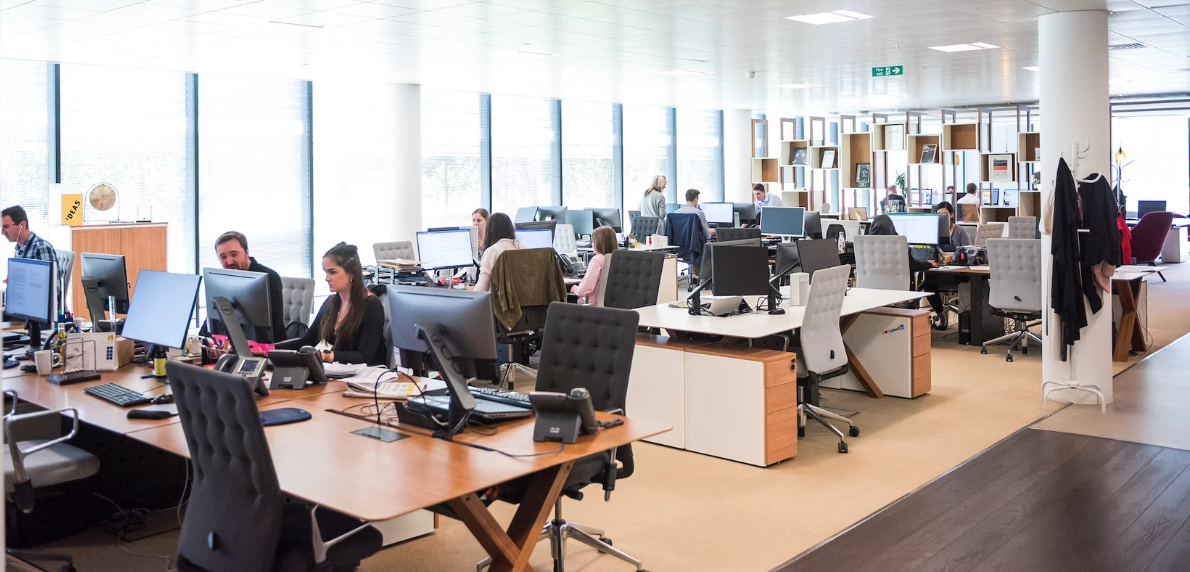How to Enforce a Good Life-Work Balance
Like finding that elusive Wi-Fi signal in a crowded coffee shop, maintaining a healthy work-life balance has become a coveted goal of the modern-day professional. We all yearn for that magical equilibrium between our corporate ambitions and our personal lives, but let’s face it, achieving such a delicate harmony can feel challenging — especially with the boundaries between home and work more blurred than ever before.
Today, we’re going to dive into the art of enforcing a good life-work balance. We’ll explore four key points that will help you navigate the treacherous waters of deadlines, responsibilities, and the most precious of all resources: free time. As the old saying goes: “All work and no play makes Jack a dull boy. All play and no work makes Jack a mere toy.” So without further ado, let’s discuss how to strike the best balance possible.
Prioritize Self-Care
One of the cornerstones of a healthy balance between your professional and personal life is self-care. This is because your mental and physical wellbeing are inextricably linked to your ability to get the job done.
First things first, let’s talk about your physical health. If your career requires you to sit at a desk all day, we’ve got some bad news: a sedentary lifestyle (that is, sitting for over 7 hours per day) increases your risk of chronic health problems, including heart disease, diabetes, and even some cancers. Now, we’re not suggesting that you need to become a fitness guru overnight, but incorporating some physical activity into your daily routine can work wonders for your health. Consider purchasing a standing desk, or opting to take a brisk walk during your daily team Zoom meeting. Not only will these simple acts stave off the ill effects of remaining immobile for hours on end, but they’ll also make you feel happier, thanks to the release of endorphins.
Sadly, mental health is a topic far less touched upon. Thanks to the global pandemic, many of us now enjoy the freedom to work in a hybrid or fully-remote environment. For many of us, this change has been a positive development, but unfortunately, this isn’t a universal experience. Research shows that many remote workers are putting in longer hours at their desks, citing an inability to ‘turn off’ due to blurred boundaries between work and home. Working remotely also means a lack of social interaction — especially for those who live alone. Of course, how this affects each of us on an individual level differs greatly, but for those who are negatively affected, the impact can be significant.
If you’re working remotely, it’s essential that you take care of your emotional wellbeing. Remote’s guide on mental health for remote teams is a great place to start if you’re seeking guidance, but if you’re struggling, don’t suffer alone. Don’t be afraid to seek support from friends, family, or even a colleague. Remember, a healthy mind is a happy mind, and it plays a vital role in achieving that elusive work-life balance. Above all, keep in mind that self-care isn’t selfish — it’s self-preservation. By prioritising your physical, mental, and emotional wellbeing, you’re bringing your best self to work — and isn’t that exactly what your boss would want?

Establish Boundaries
The first step in establishing boundaries is setting realistic work hours. Determine a schedule that aligns with your productivity peaks and the demands of your job. Whether it’s a traditional 9-to-5 or a more flexible arrangement, stick to those designated work hours as much as possible. This means resisting the temptation to check emails or complete tasks outside of those hours. Remember, work-life balance means having dedicated time for both work and personal life.
Communication is key when it comes to setting boundaries. Talk to your colleagues and superiors about your expectations and limitations. Let them know when you are available and when you are not. Be assertive with your personal time and make it clear that you won’t be readily available 24/7. Setting these expectations can help manage others’ expectations and reduce the likelihood of work encroaching on your personal life.
Avoid the slippery slope of overworking and burnout. Just because you can work around the clock doesn’t mean you should. Recognize your limits and give yourself permission to unplug and recharge. Remember, you’re not a robot — take breaks, indulge in leisure activities, and as we discussed earlier, prioritize self-care. By setting firm boundaries and honoring your personal time, you’ll be more energized, focused, and productive during your designated work hours.
Now, I know what you might be thinking: “But what if I’m a workaholic?” Well, my friend, it’s time to break free from those chains. Challenge yourself to find fulfillment and enjoyment beyond the realms of work. Cultivate hobbies, spend quality time with loved ones, and explore passions outside of your career. Remember, life is a rich tapestry of experiences, and work is just one thread in that tapestry. By establishing boundaries and nurturing your personal life, you’ll find greater joy, fulfillment, and balance overall.
Learn to Say “No”
While being a ‘yes man’ is often seen as a fast track to making a good impression with your superiors, it’s also a shortcut to becoming overworked and burnt-out.
Learning to say “no” is a powerful skill that allows you to set boundaries and protect your work-life balance. It’s important to prioritize tasks and responsibilities based on their urgency and alignment with your goals. Assess each request or opportunity that comes your way and determine if it truly aligns with your priorities and capacity. When saying “no”, be respectful, assertive, and honest. Explain your current workload, and offer alternative solutions or suggest delegating the task to someone else if possible. Remember, saying “no” doesn’t mean you’re incapable or unhelpful; it simply means you value your time and well-being.
It’s natural to have concerns about the potential consequences of saying “no”, such as disappointing others or damaging relationships. However, you’d be surprised at how often people will understand and appreciate your honesty. In fact, setting boundaries and saying “no” when necessary can earn you respect and improve your credibility as someone who values their time and priorities.
By saying “no” to nonessential tasks or commitments, you create space for activities that truly matter to you — whether it’s spending quality time with loved ones, pursuing personal hobbies, or simply enjoying some much-needed relaxation. Remember, your time is a precious resource, and saying “no” is an act of self-care and self-preservation.
Schedule Leisure Time
Scheduling leisure time may seem counterintuitive in a world that glorifies productivity, but trust us, it’s a game-changer. Block out dedicated periods in your calendar for leisure activities, hobbies, and socializing. Treat these time slots as sacred and non-negotiable, just like you would with a crucial work meeting. Remember — it’s not about having enough time, it’s about making enough time, and by locking off parts of your day, you’re doing exactly that.
Now, what constitutes leisure time? It could be anything that brings you joy and helps you unwind. It could be reading a book, going for a hike, practicing a musical instrument, or even indulging in a guilty pleasure like binge-watching your favorite TV series (no judgment here!). The key is to engage in activities that nourish your soul and recharge your batteries.
Don’t underestimate the power of leisure time in enhancing your productivity and creativity. When you allow yourself to step away from work and engage in enjoyable activities, you give your mind a chance to relax and rejuvenate. It’s during these leisure moments that inspiration often strikes, ideas flow freely, and you come back to work with renewed energy and focus.
So go ahead, grab your calendar, and pencil in some well-deserved leisure time. Embrace the power of play and let the world see that you’re not just a workaholic, but a master of balance. Your happiness and fulfillment depend on it.








